Andrea Ojeda
El pincel adolescente: Voces negras
30 August, 2020
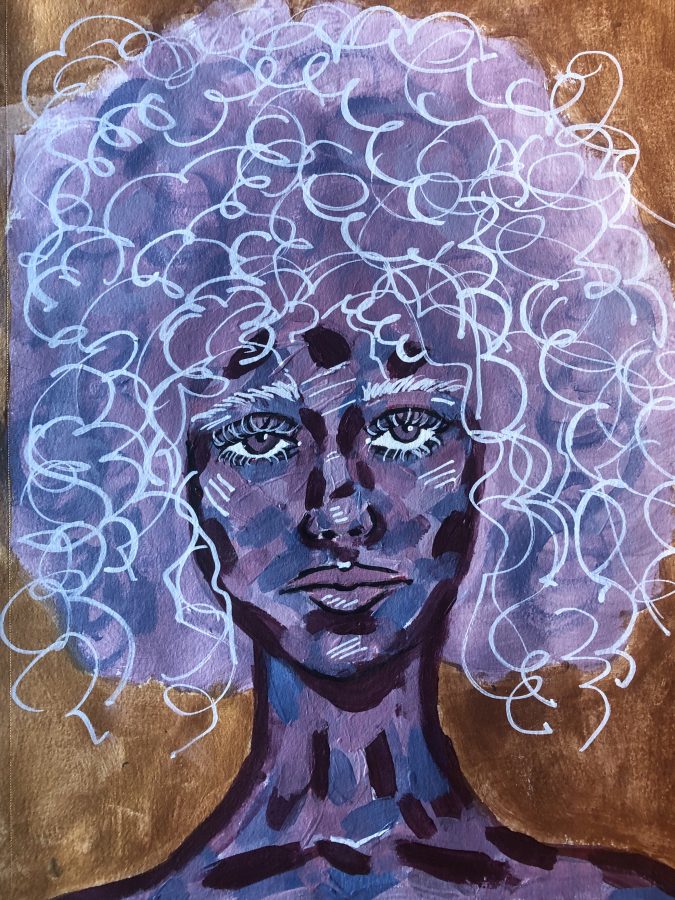
Conozco a Zora desde que se hizo amiga de mi hija en el quinto grado. A lo largo de los años, pasando por la secundaria (middle school) y hasta ahora en su último año de preparatoria (high school), su amistad ha crecido hasta volverse casi hermanas. Ambas son las menores de tres hijos y ambas tienen dos hermanos varones mayores. Ambas aman la danza y han bailado juntas desde en incontables obras musicales de la escuela (en el Rey León Zora era una leonesa y Julia una hiena), hasta los múltiples Tik-Toks que graban en su teléfono cuando van al baño juntas en la escuela. Conozco a la familia de Zora y a sus notables padres, académicos ambos, de quienes he aprendido infinidad de cosas sobre la cultura afroamericana, sobre feminismo, sobre la lucha social, sobre la ropa vintage y sobre la cocina de Luisiana. Pero hay algo que no conocía y que descubrí recientemente, por esto de la pandemia, y es que además de todos los atributos que tiene Zora (porque me faltó mencionar que es una estupenda estudiante), además es una gran artista. Al principio de la cuarentena se juntaban a pintar, mi hija y Zora y otra amiga cercana, y ahí percibí la facilidad con la que ejecutaba sus dibujos y escogía los colores. Luego, porque siguió el encierro y ella siguió pintando más y más, vi publicaciones de su mamá en facebook donde compartía algunas de las cosas que Zora acababa de pintar y me maravillé enseguida. ¡Se veía todo tan auténtico y tan profesional!. De manera que cuando empezamos a juntar material para nuestra edición de la revista dedicado a las voces negras, inmediatamente pensé en Zora. Me tomó mi tiempo, no tanto convencerla de participar sino tener que estar endilgando cada dos tres días para que me mandara cosas, pero finalmente lo logré y aquí lo paso a compartir con ustedes. Una voz genuina de una artista emergente, su visión, su arte.
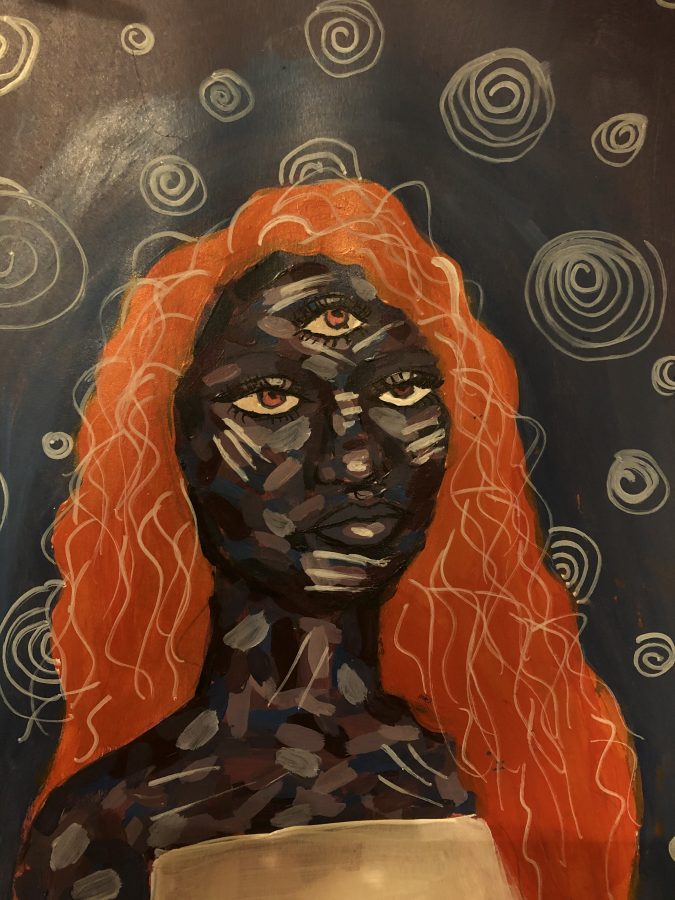
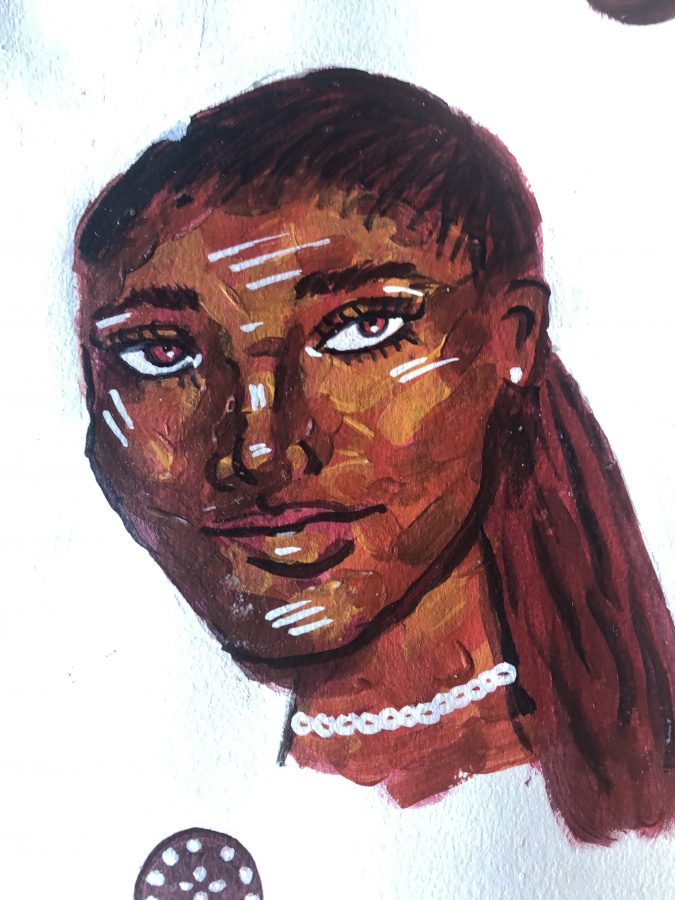
I have known Zora since she became friends with my daughter in fifth grade. Over the years, moving through middle school and up to now in their senior year of high school, their friendship has grown to become that of sisters. Both are the youngest of three children and both have two older brothers. They both love dance and have danced together from countless school musicals (in the Lion King Zora was a lioness and Julia a hyena), to the multiple Tik-Toks that they record on their phone when they go to the bathroom together at school. I know Zora’s family and her remarkable parents, both academics, from whom I have learned countless things about African-American culture, feminism, social struggles, vintage clothing, and Louisiana cuisine. But there is something I did not know that I discovered recently, because of the pandemic, and that is that, in addition to all the attributes that Zora has (did I mention that she is a straight A’s student?), she is also a great artist. At the beginning of the lockdown, my daughter, Zora and another close friend used to get together to paint, and it was then that I noticed the ease with which she executed her drawings and her choice of colors. Then, because the confinement continued and she kept painting more and more, her mother started sharing some of her work on Facebook and I was immediately amazed. It all looked so authentic and so professional! So when we started gathering material for our issue dedicated to Black Voices, I immediately thought of Zora. It took me some time, not so much convincing her to participate but rather, bugging her every other day for her to send me things, but I finally succeeded and here they are, ready to share with you. The voice of an emerging artist, her vision, her art.
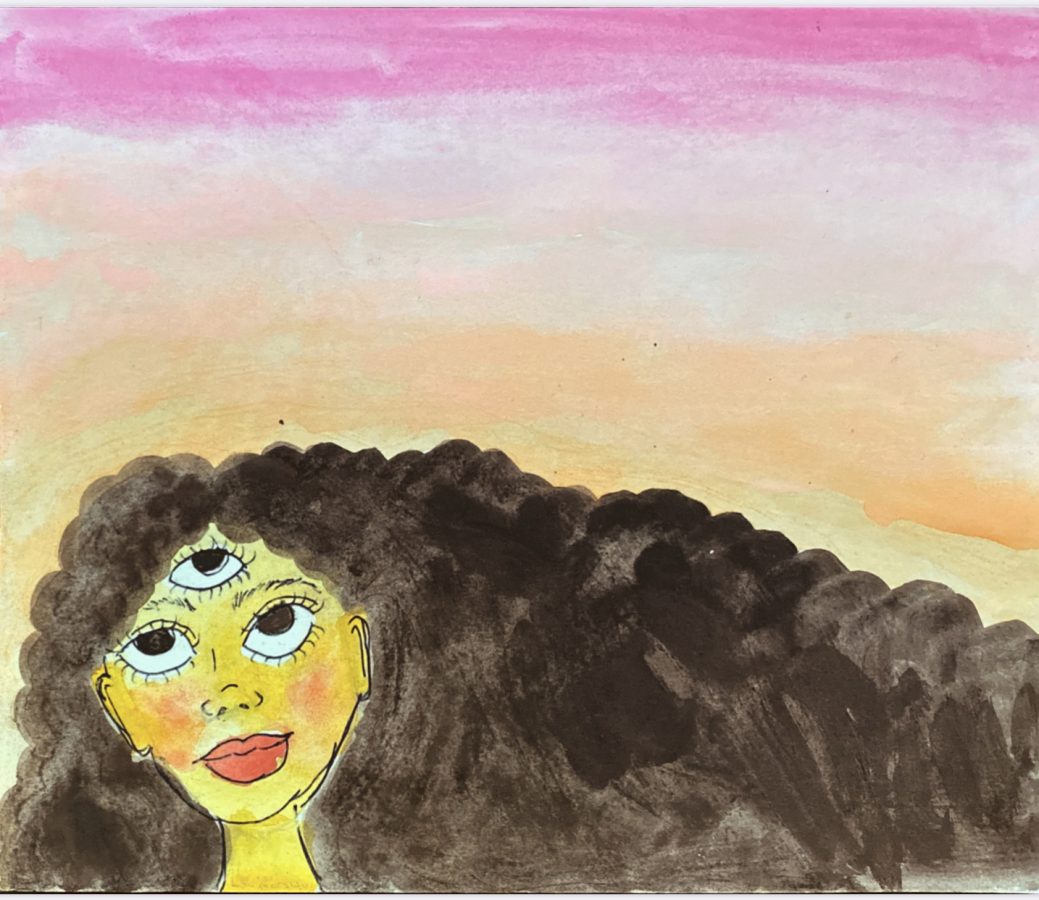
Contratiempo: ¿Cómo te llamas y dónde naciste?
Zora: Me llamo Zora Johnson y nací en Rochester, New York. Tengo 16 años.
C: ¿Cuándo empezaste a pintar?
Z: De niña fui a una primaria enfocada en artes y ciencia, así que he pintado toda mi vida. A mi papá también le gusta mucho, así que seguido pintamos juntos.
C: ¿Crees que la pandemia y el encierro han provocado más creatividad? ¿Cuál es tu medio favorito?
Z: ¡Definitivamente! Cuando empezó la cuarentena fui a comprar material para pintar y no he parado desde entonces. Mi medio favorito es el acrílico.
C: ¿Cómo te han afectado los eventos recientes y el movimiento Black Lives Matter personal y artísticamente?
Z: Con mis padres en casa siempre hemos mantenido estas conversaciones así que para cuando el movimiento cobró tanta atención, a mí no me afectó. Lo que es curioso es que yo siempre he hecho retratos de gente negra, pero últimamente me ha dado por incorporar más y más retratos de gente que no se ve como yo; salir de esa zona de confort
C: ¿Me puedes hablar un poco de los símbolos que dibujas en algunas de las caras que dibujas?
Z: Quería un poco emular los tatuajes faciales que se usan en África, pero en realidad no tienen ningún significado tribal. Sólo me gusta cómo se ven.
C: Sé que tus padres se consideran “afrocentristas” ¿te consideras tú también, y qué significa eso para tí?
Z: Sigo tratando de familiarizarme con el concepto. Mis padres, a mi edad, estaban tratando de encontrar su identidad. Pero ellos crecieron en comunidades predominantemente negras, mientras que mi caso es diferente pues yo he crecido en comunidades más… diversas (por no decir más blancas). Es así que es diferente para mí.
C: ¿Cuales son tus planes o sueños para el futuro?
Z: No tengo un plan fijo. Me gusta pintar pero me gustaría ir a la universidad a estudiar negocios, porque el arte puede ir conmigo a donde vaya. También me gustaría hacer algo relacionado con la danza.
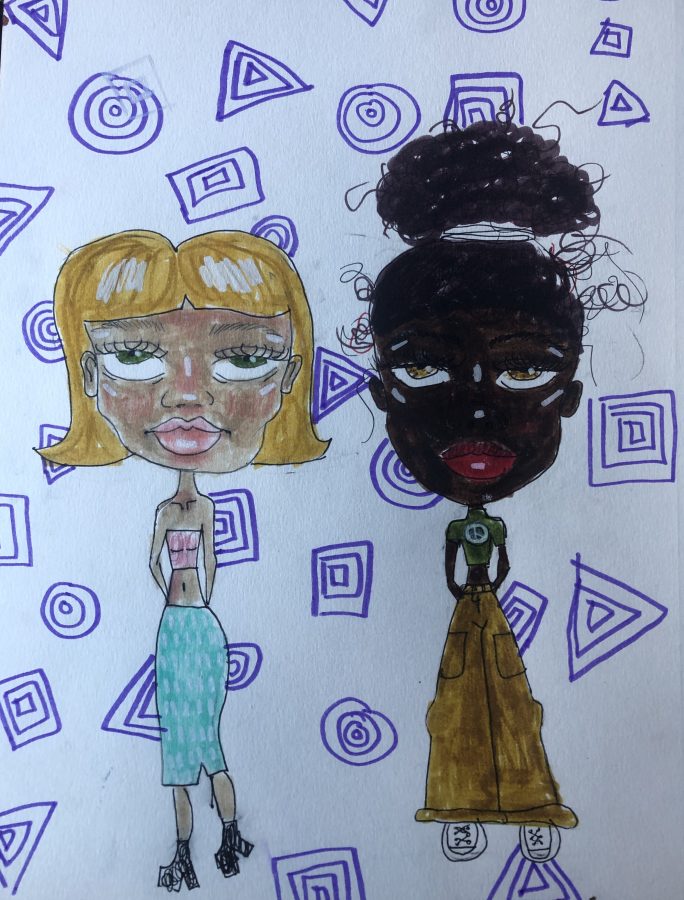
Contratiempo: What’s your name and age and where were you born?
Zora: Zora Johnson, 16 years old, born in Rochester New York
C: When did you start painting?
Z: I went to an arts and sciences elementary school, so I’ve been doing art most of my life. My dad is into painting too, so we do this together often.
C: Has the pandemia and lockdown played a role in you making art? What’s your preferred medium.?
Z: Definitely. I bought paint and started making art again during quarantine and I haven¨t stopped.. I like acrylic paint mostly.
C: How have the events leading to the BLM protests affected you personally and artistically?
Z: I’ve always been having those conversations with my parents, so when it became a big thing in the media it wasn’t a big thing for me. Strangely enough, I have always made portraits of Black people, but it wasn’t until lately that I started painting more people that didn’t look like me. I’ve been trying to get out of that comfort zone.
C: Can you tell me about some of the symbols in your portraits, specifically those marking on the faces?
Z: I wanted to emulate a bit of the African face tattoos, but they aren’t necessarily tribal; I just feel like doing them.
C: Your parents say they’re Afrocentrists. What does that mean to you and do you consider yourself that too?
Z: I’m still familiarizing with that term. For my parents, they were trying to figure out their ancestry at the age I am now. They grew up in predominantly Black communities, whereas in my case I’ve grown in a more… diverse one (if not a whiter one), so that’s how it’s different for me.
C: What are your plans/dreams for the future?
Z: Don’t have a plan. I like to do art but would like to go to school for business because you can take that anywhere. I’d also like to do something dance related.
—-
Traducción y entrevista: Andrea Ojeda

